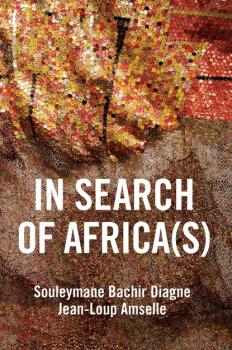ТОП просматриваемых книг сайта:















Souleymane Bachir Diagne
Список книг автора Souleymane Bachir DiagneАннотация
Souleymane Bachir Diagne zeigt in diesem prägnanten Essay, dass die islamische Welt sich von Anfang an den Herausforderungen der griechischen Philosophie gestellt hat und immer offen war für die Konfrontation mit der Vernunft. Er appelliert an eine Rückbesinnung auf diese Tradition.
Im Islam zu philosophieren, bedeutet, die von der muslimischen Tradition überlieferten Texte den Ansprüchen der Vernunft auszusetzen. Das muslimische kulturelle Universum hat seit Avicenna, Averroes und Ghazali nicht aufgehört, diesen anspruchsvollen Dialog zwischen dem offenbarten Wort und einer Vernunft zu führen, die zu freier Interpretation aufruft. In einer Zeit, in der überall die Versuchung der Verschließung und Absonderung lockt und die Gefahren von Kulturkonflikten wachsen, spricht dieses Werk deutlich die Einladung aus, an die alte Tradition des Austauschs anzuknüpfen und die Arbeit an den Fragen unserer Gegenwart damit zu befruchten. Eine Lehre der Vernunft und der Hoffnung.
Im Islam zu philosophieren, bedeutet, die von der muslimischen Tradition überlieferten Texte den Ansprüchen der Vernunft auszusetzen. Das muslimische kulturelle Universum hat seit Avicenna, Averroes und Ghazali nicht aufgehört, diesen anspruchsvollen Dialog zwischen dem offenbarten Wort und einer Vernunft zu führen, die zu freier Interpretation aufruft. In einer Zeit, in der überall die Versuchung der Verschließung und Absonderung lockt und die Gefahren von Kulturkonflikten wachsen, spricht dieses Werk deutlich die Einladung aus, an die alte Tradition des Austauschs anzuknüpfen und die Arbeit an den Fragen unserer Gegenwart damit zu befruchten. Eine Lehre der Vernunft und der Hoffnung.
Информация о книге
Автор произведения Souleymane Bachir Diagne
Жанр Документальная литература
Серия Passagen Thema
Аннотация
This important book by two leading scholars of Africa examines a series of issues that are central to the question of the postcolonial. The postcolonial paradigm, and the more recent decolonial paradigm, raise the issue of the universal: is the postcolonial the first phase of a new universalism, one which would be truly universal because it would be fully inclusive, or is it on the contrary the denial of all universalism, the triumph of the particular and of fragmentation? <br /> <br /> In addressing this issue Diagne and Amselle also tackle many related themes, such as the concepts of race, culture and identity, the role of languages in philosophy as practised in different cultural areas, the various conceptions of Islam, especially in West Africa, and the outlines of an Africa which can be thought of at the same time as singular and as plural. Each thinker looks back at his writings on these themes, comparing and contrasting them with those of his interlocutor. While Amselle seeks to expose the essentialist and culturalist logics that might underlie postcolonial and decolonial thought, Diagne consistently refuses to adopt the trappings of the Afrocentrist and particularist thinker. He argues instead for a total decentring of all thought, one that rejects all ‘centrisms’ and highlights instead branchings and connections, transfers, analogies and reciprocal influences between cultural places and intellectual fields that may be distant but are not distinct in space and time.<br /> <br /> This volume is a timely contribution to current debates on the postcolonial question and its new decolonial form. It will be of great interest to students and scholars in a variety of fields, from African studies and Black studies to philosophy, anthropology, sociology and cultural studies, as well as to anyone interested in the debates around postcolonial studies and decolonial thought



